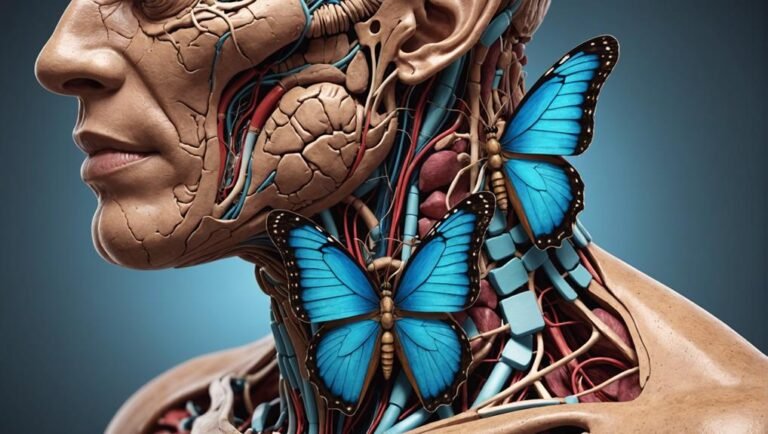Unlocking Insights: Mental Health Chronicles
Exploring the intricate landscape of mental health, 'Unlocking Insights: Mental Health Chronicles' offers a compelling look at prevalent conditions and effective coping mechanisms. As we navigate the complexities of mental well-being, understanding the impact of caregiving, benefits of forgiveness, and the role of exercise in combating depression can provide invaluable insights. Additionally, shedding light on the effects of medical anxiety, risks associated with uncontrolled gambling, and strategies for coping with psoriasis reveals a holistic approach to mental resilience. In a world where mental health is a critical component of overall well-being, these chronicles offer a beacon of hope and empowerment.
Key Takeaways
- Mental health statistics reveal high prevalence of disorders
- Caregivers face significant stress and need self-care
- Forgiveness enhances mental well-being and relationships
- Exercise, like yoga and dance therapy, aids in depression management
- Psoriasis impacts physical health and requires advanced treatments
Mental Health Statistics
Mental health statistics reveal an important reality, indicating that approximately 50% of individuals will experience a mental disorder by the age of 75, with prevalent conditions in men encompassing depression, phobias, and alcohol use disorder.
Coping strategies play a significant role in managing these conditions, such as cognitive-behavioral therapy, mindfulness practices, and social support networks.
Prevention methods are equally essential, including early intervention, regular mental health screenings, stress management techniques, and healthy lifestyle choices like exercise and balanced nutrition.
By implementing effective coping strategies and prevention methods, individuals can enhance their mental well-being, mitigate the impact of these disorders, and improve their overall quality of life.
It is essential to promote awareness, reduce stigma, and encourage seeking help when needed to address mental health challenges proactively.
Impact of Caregiving
The role of caregivers in providing essential support and assistance to individuals facing health challenges is vital in shaping both the physical and emotional well-being of those under their care. Caregivers often experience significant stress due to the demanding nature of their responsibilities, which can lead to negative impacts on their own mental and physical health.
It is essential for caregivers to prioritize self-care and seek out respite care options to prevent burnout and maintain their well-being. Respite care offers caregivers the opportunity to take a break from their duties, recharge, and address their own needs.
Benefits of Forgiveness
Recognizing the transformative power of forgiveness in enhancing mental well-being and overall health is vital for individuals managing intricate emotional terrains. Forgiveness plays an essential role in promoting emotional healing by releasing negative emotions, fostering inner peace, and reducing the burden of grudges and resentment.
By letting go of past grievances, individuals experience a sense of liberation and relief, leading to reduced stress levels and improved mental clarity. Studies have shown that practicing forgiveness can lower anxiety and depression, improve sleep quality, and even lower blood pressure and heart rate.
Embracing forgiveness not only benefits the individual's mental health but also contributes to a more positive outlook on life and healthier relationships with others.
Exercise for Depression
Engaging in physical activities has been identified as an important factor in alleviating symptoms of depression. Exercise not only benefits physical health but also plays a vital role in improving mental well-being. In the context of depression, incorporating specific forms of physical activity can be particularly effective.
- Yoga therapy: Combining physical postures, breathing techniques, and meditation, yoga therapy promotes relaxation and mindfulness, which are essential for managing depressive symptoms.
- Dance therapy: Through expressive movement and music, dance therapy provides a creative outlet for emotions, boosts self-esteem, and enhances overall mood.
- Regular walking: Simple yet effective, walking outdoors can uplift mood, increase energy levels, and reduce feelings of sadness.
- Strength training: Building muscle strength not only benefits physical health but also boosts confidence and self-image, contributing to a positive mindset.
Effects of Psoriasis
Psoriasis manifests as a chronic inflammatory skin condition that not only impacts physical health but also carries significant emotional and social implications for individuals affected by it. The stigma associated with psoriasis can affect daily life, leading to feelings of embarrassment and isolation. Seeking advanced therapies, such as biologic drugs or phototherapy, can help manage symptoms effectively. Connecting with support groups or healthcare professionals can aid in coping with the challenges posed by this condition. Below is a table highlighting some effects of psoriasis:
| Effects of Psoriasis | Description | Management |
|---|---|---|
| Physical discomfort | Skin plaques, itching | Topical treatments |
| Emotional impact | Stigma, embarrassment | Counseling, support |
| Social challenges | Isolation, reduced quality of life | Support groups, education |
Coping With Medical Anxiety
Experiencing medical anxiety can greatly impact an individual's willingness to seek necessary healthcare services and can lead to adverse effects on their overall well-being. Medical anxiety can manifest in various forms, from fear of medical procedures to avoidance of healthcare settings altogether.
To cope with medical anxiety effectively, individuals can consider the following strategies:
- Deep Breathing: Practicing deep breathing exercises can help calm the mind and body in stressful medical situations.
- Mindfulness Meditation: Engaging in mindfulness meditation can promote present-moment awareness and reduce anxious thoughts.
- Cognitive Behavioral Therapy: Seeking therapy options like cognitive behavioral therapy can assist in identifying and challenging negative thought patterns related to medical fears.
- Support Groups: Joining support groups with individuals facing similar anxieties can provide a sense of community and shared understanding.
Risks of Uncontrolled Gambling
The prevalence of uncontrolled gambling poses significant risks to individuals' financial stability, mental health, and overall well-being, necessitating a closer examination of the detrimental effects associated with this behavior.
Gambling addiction can lead to severe financial ruin, affecting not only the individual but also their loved ones. The cycle of addiction in gambling can result in mounting debts, bankruptcy, loss of assets, and strained relationships.
Additionally, the constant stress and anxiety related to financial losses can have profound effects on mental health, exacerbating conditions like depression and anxiety. Recognizing the signs of uncontrolled gambling early, seeking help through screening tests, and accessing available resources are essential steps in addressing this issue before it escalates further.
Conclusion
To sum up, the exploration of mental health in 'Unlocking Insights: Mental Health Chronicles' underscores the imperative need for proactive interventions and support systems.
By delving into statistics, caregiving impacts, forgiveness benefits, and coping strategies, the narrative illuminates the complexities of mental well-being.
Through a holistic approach encompassing therapy, mindfulness, and resilience-building, individuals can navigate challenges with grace and fortitude.
The journey towards mental wellness is a nuanced path, but one that promises growth and healing.







